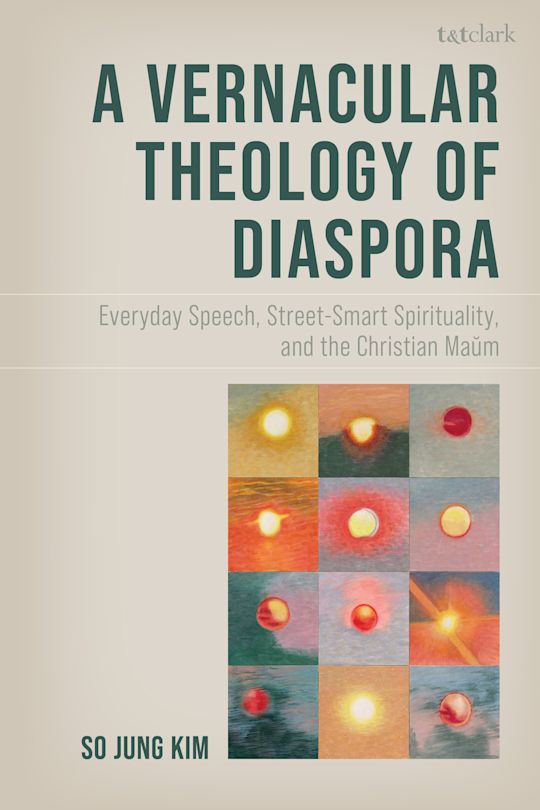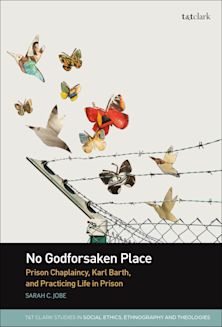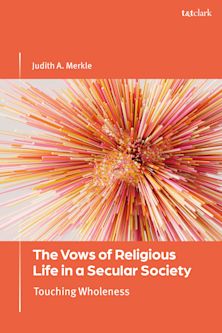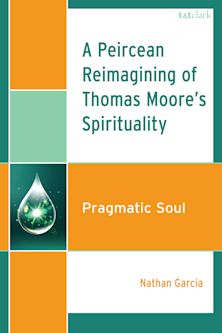- Home
- ACADEMIC
- Theology
- Spirituality and Prayer
- A Vernacular Theology of Diaspora
A Vernacular Theology of Diaspora
Everyday Speech, Street-Smart Spirituality, and the Christian Maum
A Vernacular Theology of Diaspora
Everyday Speech, Street-Smart Spirituality, and the Christian Maum
Payment for this pre-order will be taken when the item becomes available
This product is usually dispatched within 2-4 weeks following the publication date
- Delivery and returns info
-
Flat rate of $10.00 for shipping anywhere in Australia
You must sign in to add this item to your wishlist. Please sign in or create an account
Description
This book explores how language-in-use shapes the soul, identity, and spirituality of Asian American Christian women in diaspora, focusing on the theological and semiotic significance of language.
In employing an interdisciplinary framework cutting across Christian theology, linguistic anthropology, and feminist theory, the author suggests the concept of street-smart spirituality-a form of everyday mysticism embodied in vernacular speech acts. Focusing on the Korean term maum (heart–mind–soul), the book argues that everyday utterances, gestures, and vocal practices convey qualia-textured signs of internal experience-that articulate Christian subjectivity beyond institutional orders or dominant linguistic norms. Tracing the rhetorical tradition of sermo humilis and vernacularity from Augustine to Dante, and placing it in conversation with Marguerite Porete and Yi Suni, the book reveals how Christian vernaculars have functioned as vehicles of resistance, intimacy, and transformation. In grappling with the racialized demands of “standard” American English, this work affirms the power of fragile, diasporic, and accented speech as a site of divine encounter and theological agency. The book invites readers to rethink what makes language “Christian,” what renders a person “American enough,” and how voice becomes a sacred medium of becoming.
Table of Contents
Part I: Spirituality and Language-in-Use in Historical Examples
Chapter 1. Street-Smart Spirituality in Augustine of Hippo and Dante Alighieri
Chapter 2. Street-Smart Spirituality in Marguerite Porete
Chapter 3. Street-Smart Spirituality in Yi Suni
Part II. Entangled Souls in Street-Smart Speeches
Chapter 4. Spirit of Street-Smart Manner
Chapter 5. Street-Smart Voices Embodying Maum
Chapter 6. Unveiling the Unsaid and Unbecoming
Conclusion
Bibliography
Product details
| Published | 02 Apr 2026 |
|---|---|
| Format | Hardback |
| Edition | 1st |
| Extent | 208 |
| ISBN | 9781666948653 |
| Imprint | T&T Clark |
| Dimensions | 229 x 152 mm |
| Publisher | Bloomsbury Publishing |
About the contributors
Reviews
-
With creativity and theoretical acumen, Kim combines linguistic studies with comparative mysticism to write a stunning book about the role of the heart/mind (maum) in forming our authentically whole selves. In the service of theological questions about hybrid, diasporic identities and who gets counted as fully human, this “lived grammar of the soul” is deeply personal, widely erudite, and life-giving.
Holly Hillgardner, Gresham Professor of Religious Studies, Bethany College
-
As a Korean woman theologian interested in mystic speech, Dr. Kim fearlessly pushes on not just to broaden but deepen the Western canon by maximizing its possibilities of signification. By seizing on the Korean notion of maum as the language of the heart, and connecting it quite insightfully with Augustine's notion of sermo humilis (humble speech), she enlivens our notion of what it means to be a Christian or what she calls the Christian language. Dr. Kim's dialogue between East and West organized around maum crafts a new, global narrative of Christianization which is entirely her own, as she concludes with haunting passages about the maum of being an Asian-American woman theologian.
Willemien Otten, Dorothy Grant Maclear Professor of the History of Christianity and Theology, The University of Chicago Divinity School
-
A brave and consequential proposal for "street-smart theology" spoken in diasporic conditions. So Jung Kim attunes us to vulnerable vernacularity across centuries and cultures-from Christian martyrs Marguerite Porete and Yi Suni to contemporary Asian/American Christian women. With a path-breaking method oriented to how everyday language is used to bridge and break strictures, So Jung attends to poignant processes through which diasporic faith is voiced and human-ness, woman-ness, Asian-ness, and Christian-ness are transformed. Read this book for the audacious eloquence of unsaying, undoing, and unknowing dominance. Read it for the polyphonic virtuosity of humble, heart-felt, and savvy Christian faith.
Kristine A. Culp, Associate Professor of Theology, The Divinity School, and Dean, Disciples Divinity House, The University of Chicago


































